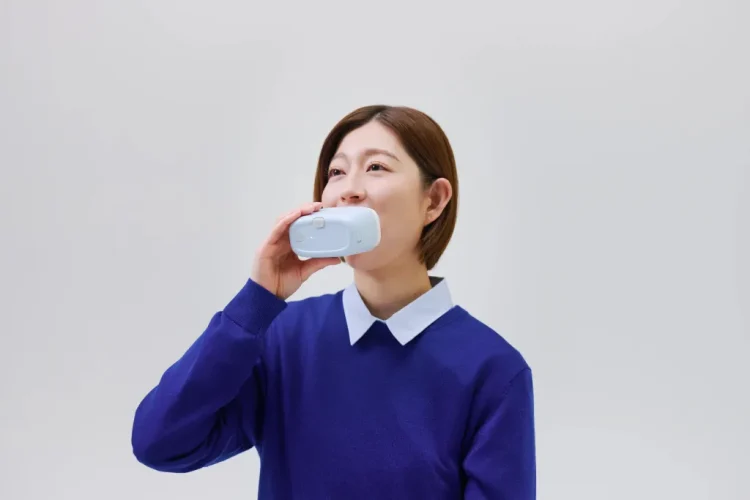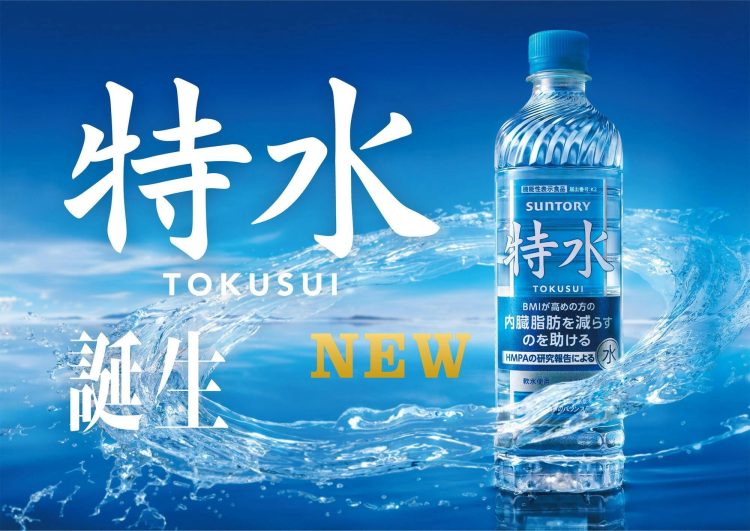Japan’s ‘Most Terrifying Staircase’ Looks More Like a Concrete Ladder

An unusually steep and narrow staircase in Gero, Japan’s Gifu Prefecture, has been dubbed the country’s most terrifying staircase.
Parents Criticized for Supporting 13-Year-Old Son’s Decision to Quit School to Play Video Games

A Japanese couple has come under fire for supporting their 13-year-old son’s decision to drop out of formal schooling so he can focus on playing video games professionally.
World’s First Oral Care Robot Brushes Your Teeth Automatically

Marketed as the world’s first oral care robot, the “g.eN” robotic toothbrush is a device that cleans the user’s teeth without any assistance.
Company Launches “Functional Water” That Helps Elimminate Abdomminal Fat

Japanese drink company Suntory recently launched a functional drinking water that can allegedly reduce abdominal fat. Suntory’s new ‘Special Water’ looks like regular mineral water but is officially classified as a “functional food,” meaning it’s a food product legally permitted in Japan to advertise health benefits. Special Water is aimed at office workers and those […]
Unemployed Man Exploits Food Delivery Platform to Eat 1,000 Free Meals Over Two Years

A 38-year-old Japanese man was arrested on suspicion of fraud after exploiting a food delivery app’s loophole to unlawfully receive over 1,000 deliveries without paying for them. For more than two years, Takuya Higashimoto, an unemployed man from Nagoya, Aichi Prefecture, took advantage of the order cancellation policy of a major Japanese food delivery platform […]
80-Year-Old Woman Scammed Online by Fake Astronaut Who Claimed to Be Stuck in Space

An 80-year-old Japanese woman ended up sending around 1 million yen ($6,700) to an online scammer who posed as an astronaut stuck in space and in need of money to buy oxygen. Hailing from Japan’s northern Hokkaido island, the hapless octogenarian reportedly met the scammer on social media back in July. They claimed to be […]
Fashion Brand Turns Women’s Underwear into Expensive Hair Accessories

Japanese fashion brand JennyFax has been getting a lot of attention for its newest line of hair accessories, made up of a pair of women’s panties with a hair clip glued to them. Most people would only wear underwear on their heads as a joke or a dare, but if unconventional fashion brand JennyFax has […]
Teen Poisons Uncle’s Soup Because He Couldn’t Stand His Snoring

A Japanese high school student was recently arrested for allegedly poisoning his uncle’s miso soup in an attempt to kill him because he couldn’t stand his snoring. An 18-year-old teenager from Ichibara, Japan’s Chiba prefecture, was arrested and charged with attempted murder after allegedly mincing leaves from a toxic oleander plant and mixing them into […]
Online Flea Market Bans the Sale of Ultrasound Photos to Prevent Pregnancy Fraud

Mercari, Japan’s leading online flea market, decided to prevent the sale of ultrasound photos on its platform to prevent people from using them to commit pregnancy fraud. Selling ultrasound photos of unborn babies on a flea market app is strange, but Mercari never even considered taking action against the practice until one person noticed the […]
Man Tries to Create 3D Digital Model of Deceased Dog, Ends Up with Spiky Monstrosity

A Japanese man recently shared the bizarre result of his attempt to recreate his deceased pet in 3D using a PC without enough computing power. Earlier this month, a Japanese X (Twitter) user named “アラキレイヤー” shared a screenshot of a 3D computer model of his deceased pet dog, which quickly went viral due to its […]
Japan Urgently Recalls 16,000 Toy Pistols Capable of Firing Real Ammunition

Japanese authorities are on high alert after up to 16,000 plastic toy guns used as prizes in claw machines across the country were deemed able to fire live ammunition. Japan’s National Police Agency (NPA) recently issued a warning that thousands of illegal firearms were being offered as prizes in claw machines all around the Asian […]
Japanese YouTuber Goes Viral Because of His Unusually Long and Pointy Chin

Japanese internet celebrity @Jonouchich1 is known as the ‘YouTuber’ with the world’s longest chin’, because of his unusually long and pointy chin. @Jonouchich1 is a very good example of how to turn a physical peculiarity that some would consider a defect into an advantage over the competition. The young Japanese YouTuber was ridiculed and compared […]
In Japan, You Can Rent a Grandma for $23 an Hour

Ever wish you could talk to someone more experienced about your problems, or have them prepare you a delicious home-cooked meal? Well, that’s what Japan’s OK Grandma service is for! Client Services is a Japanese company that specializes in a wide variety of convenience services, from cleaning and housing services to childcare and pet-sitting services. […]
Avatar-Like Capsule Interface Allows Anyone to Control a Robot Remotely
Japanese tech company H2L has created a capsule-like device that allows anyone to remotely control a robotic avatar just like in James Cameron’s namesake blockbuster. Imagine sitting comfortably in one of those state-of-the-art massage chairs and being able to perform most of your daily house chores by remotely controlling a robotic avatar. it sounds like […]
Japanese Man Praised for Aging Backwards Thanks to Lifestyle Changes

A 33-year-old Japanese man has been raising eyebrows because of his radical change in appearance after making drastic lifestyle changes and turning to cosmetic enhancements. Aki, who goes by @Aki_fit on X (Twitter), was recently featured on a popular show by Japanese online television network ABEMA, where he spoke about the shocking physical transformation that […]
